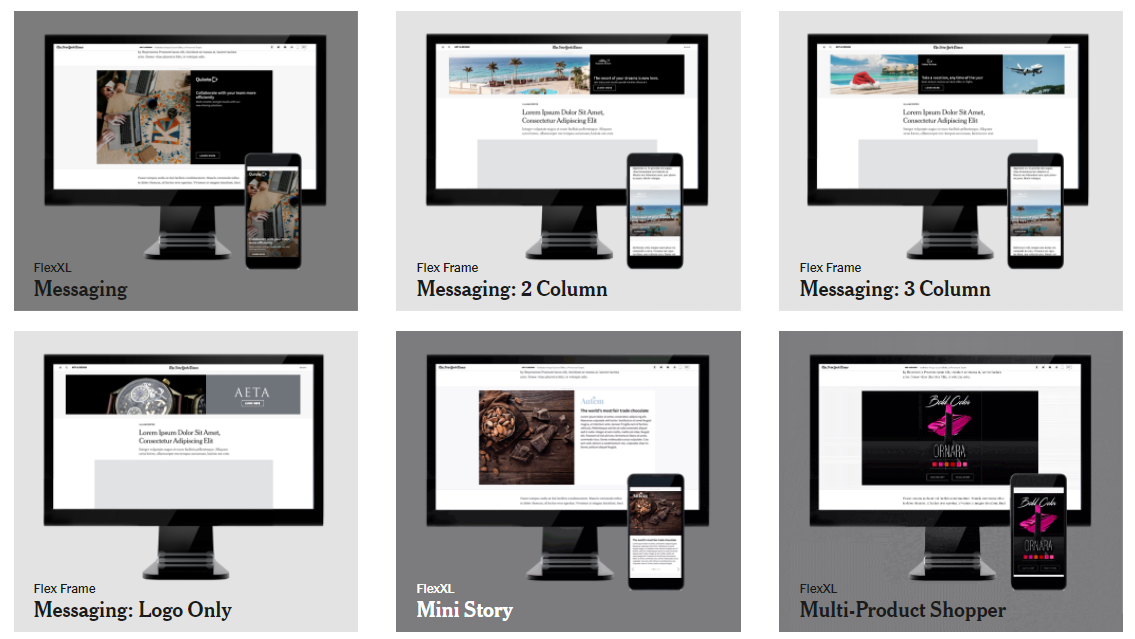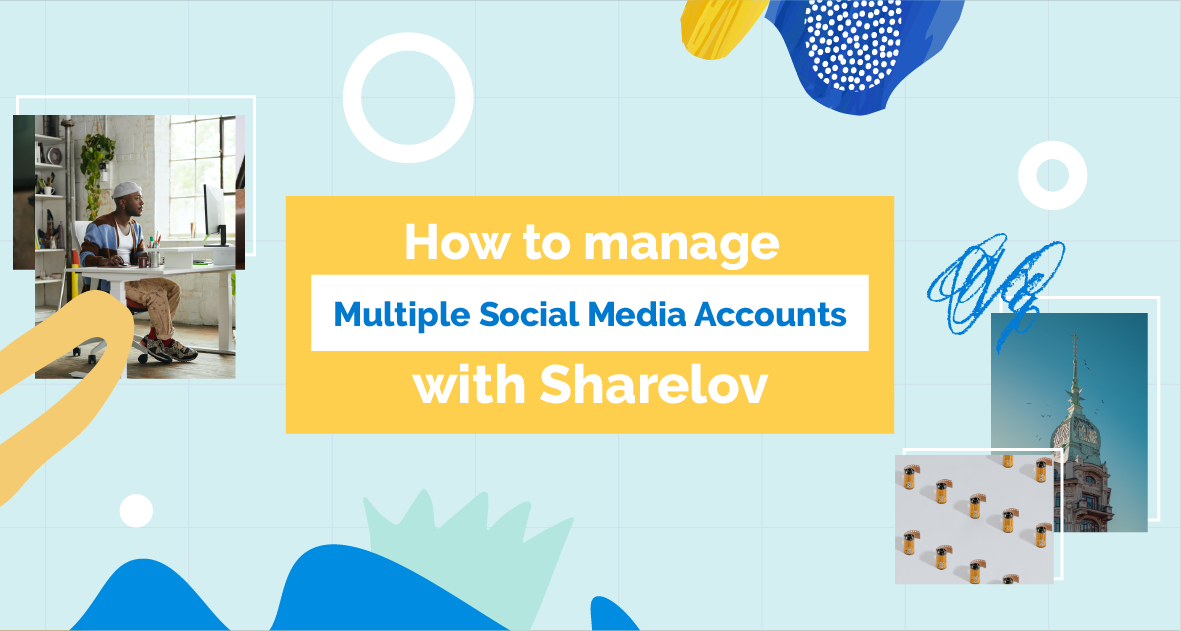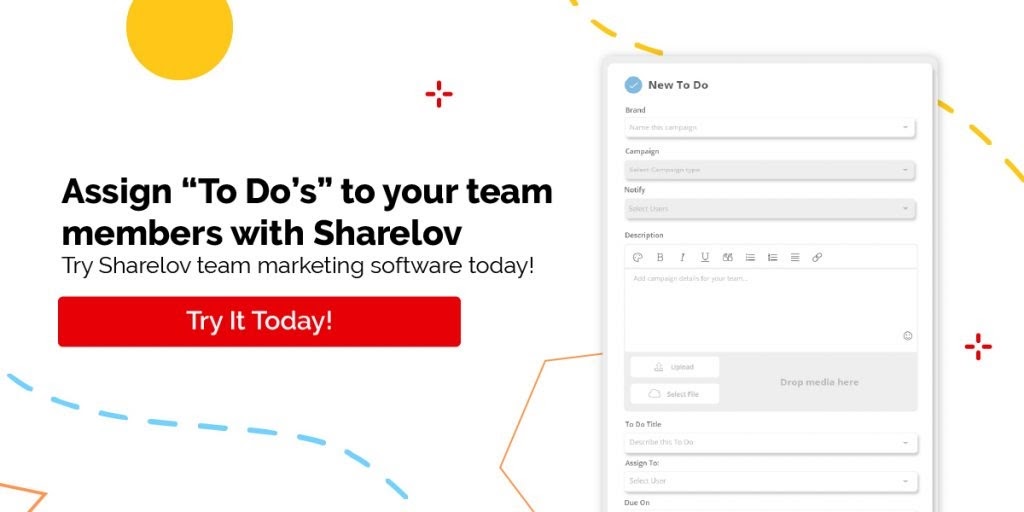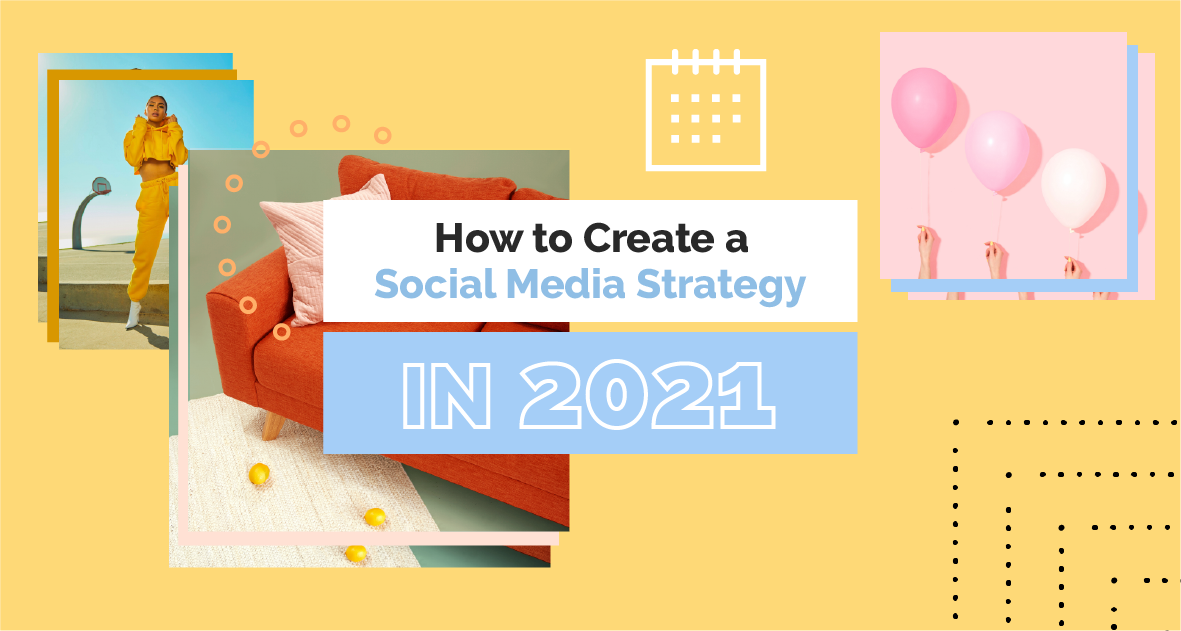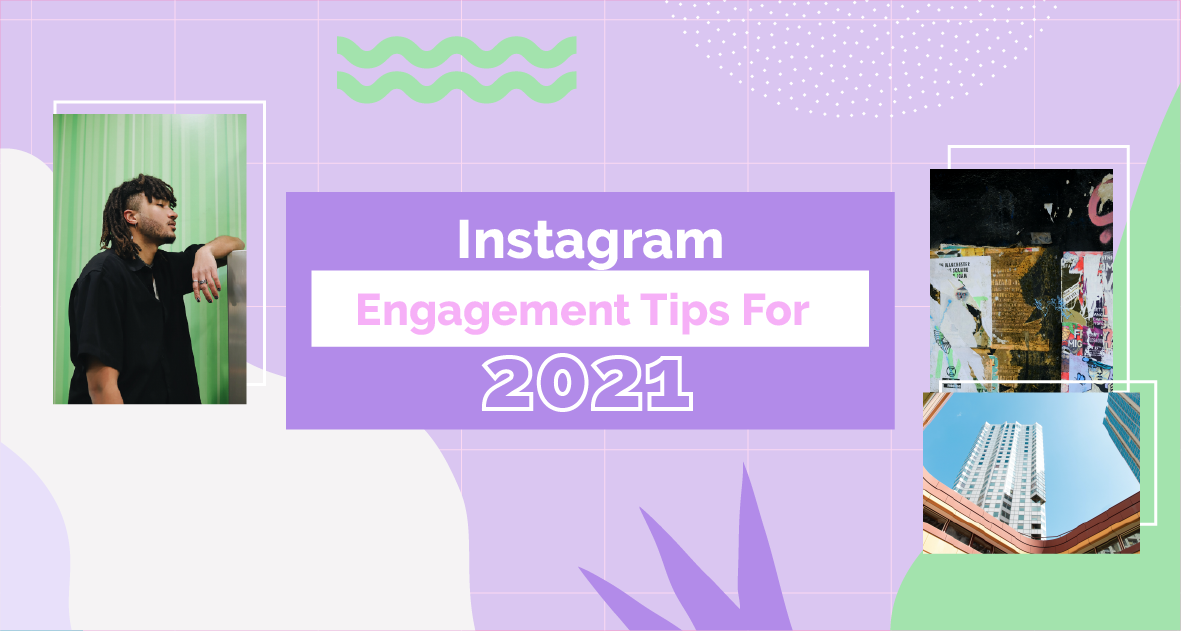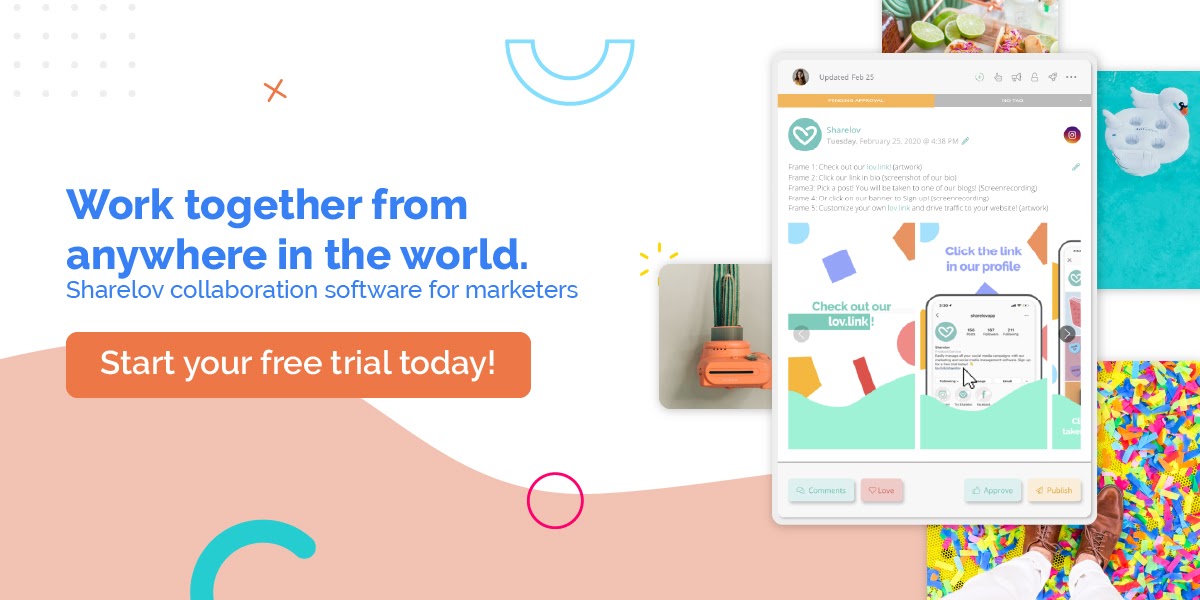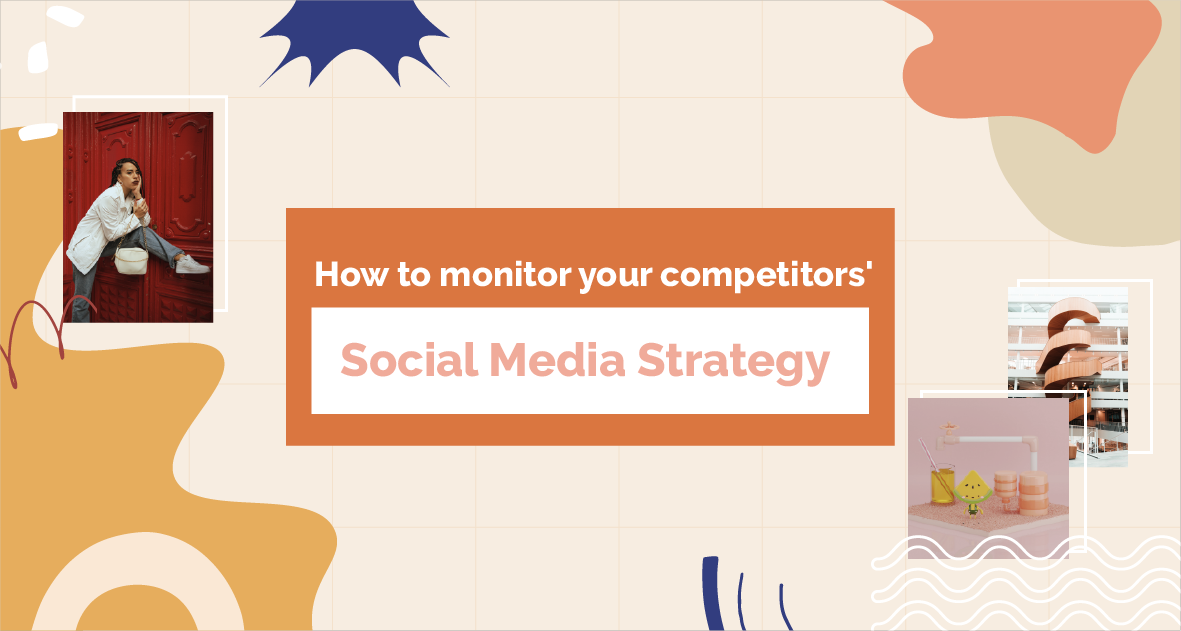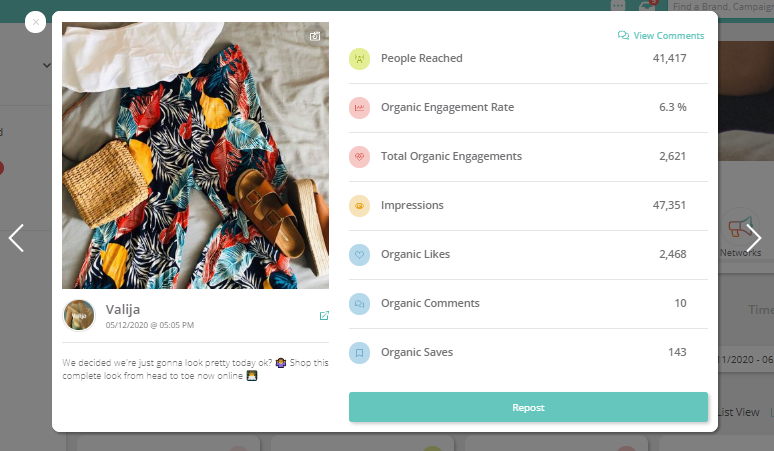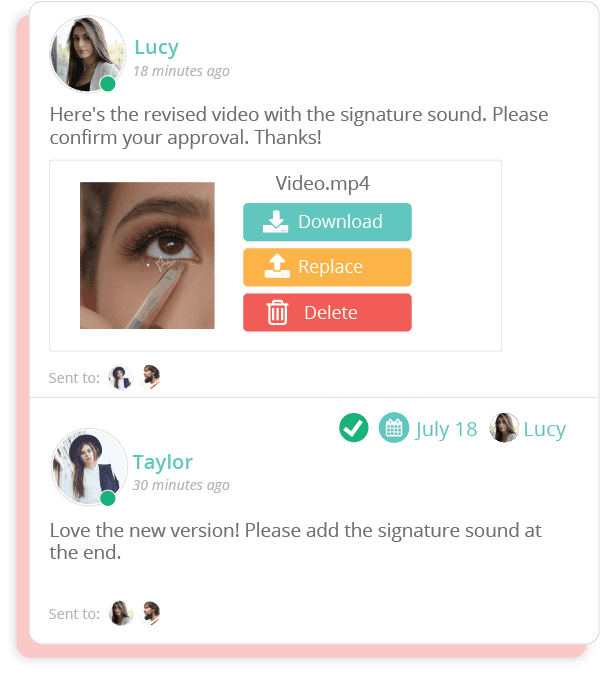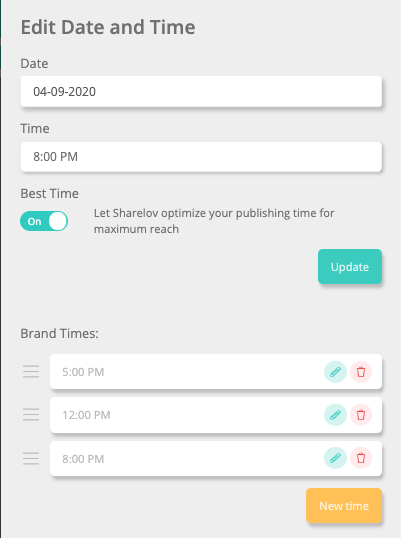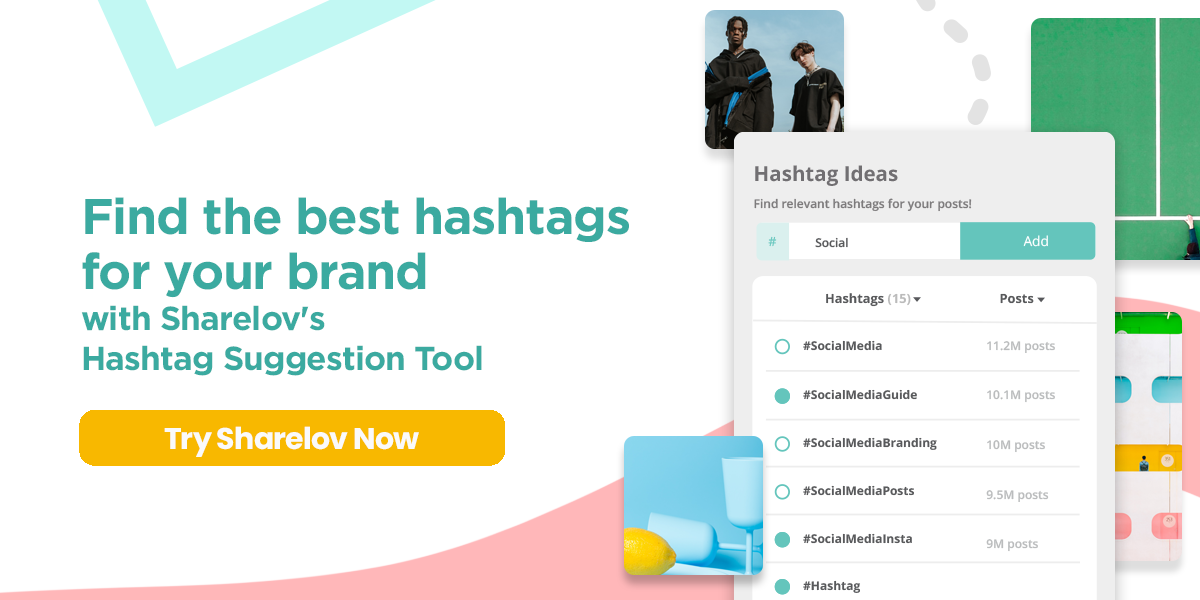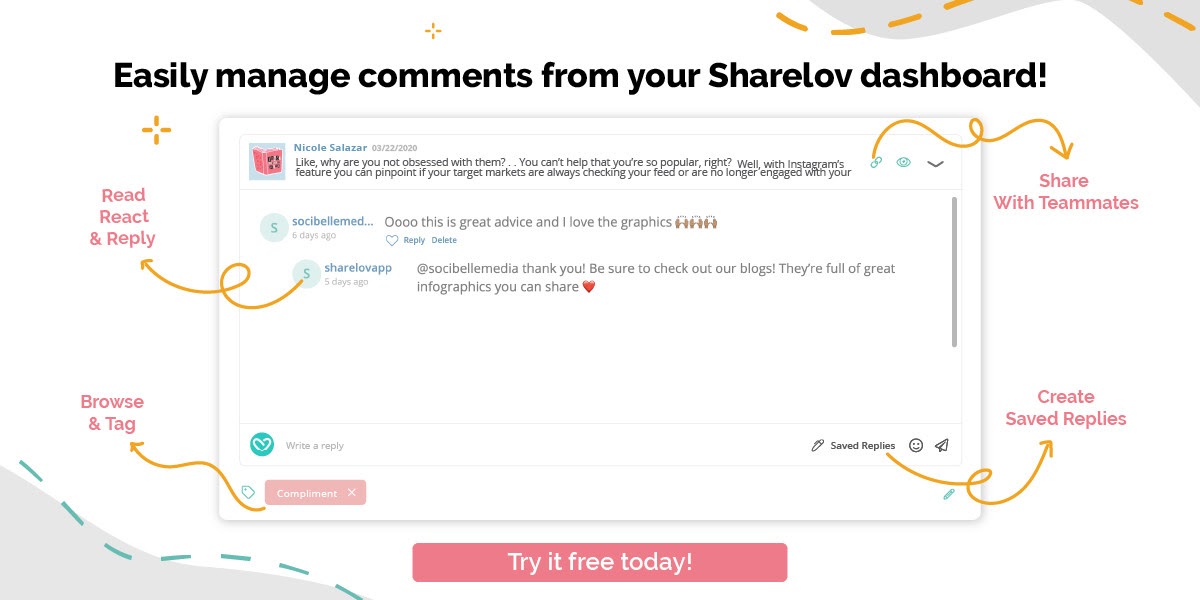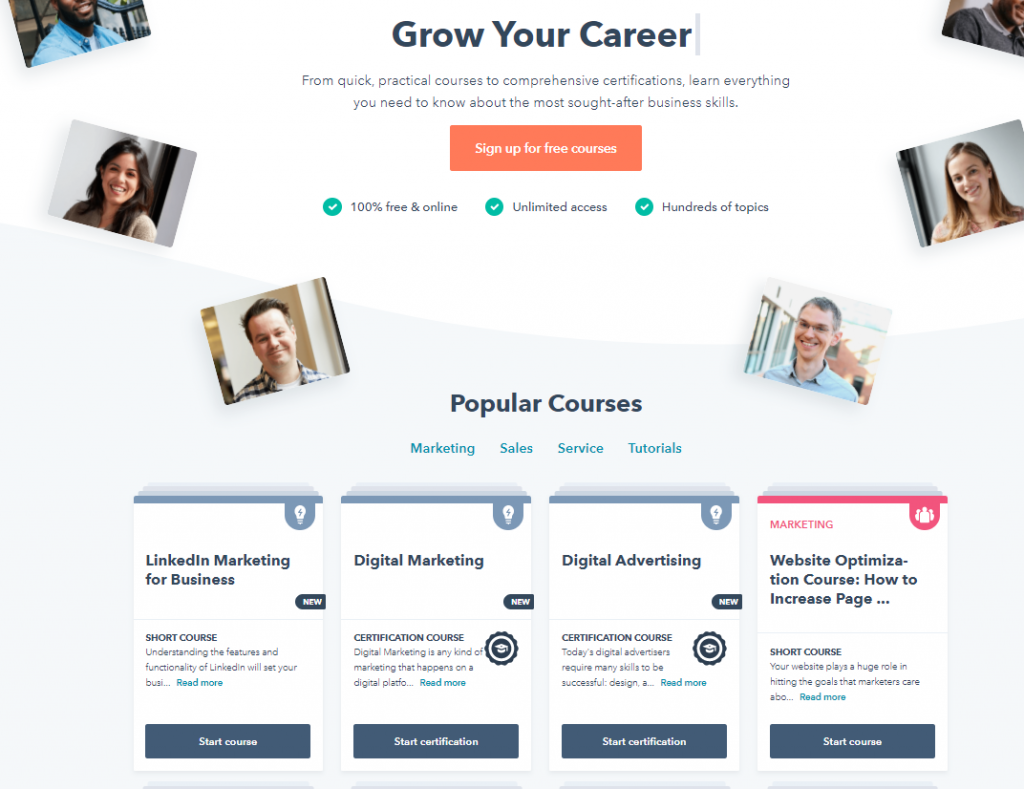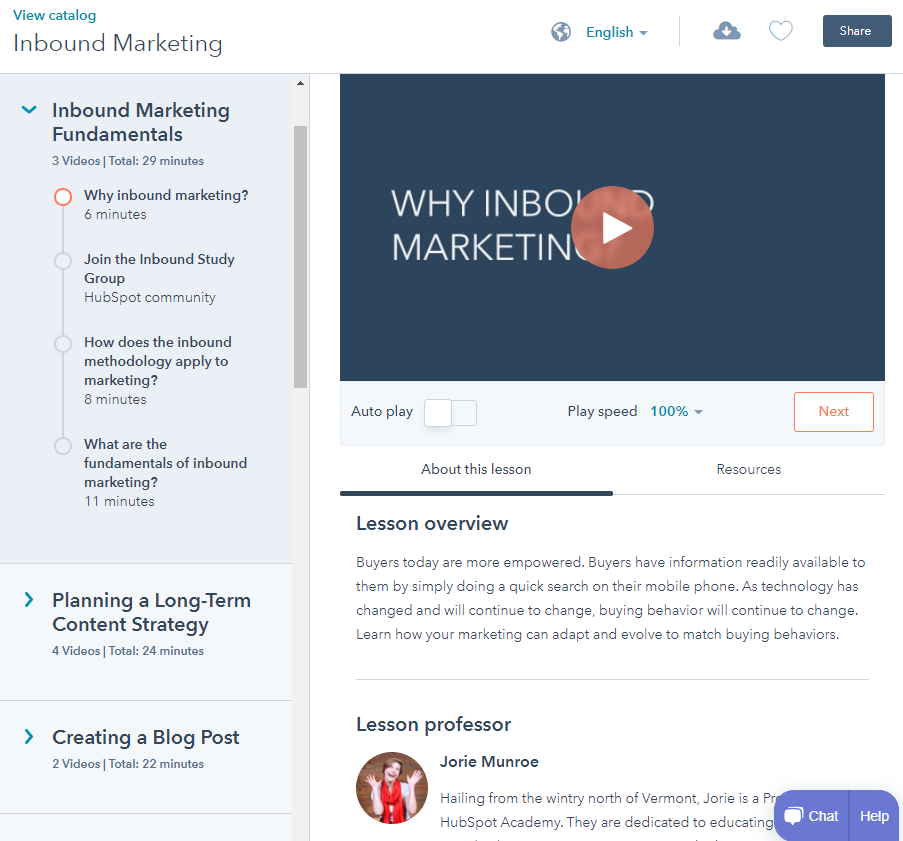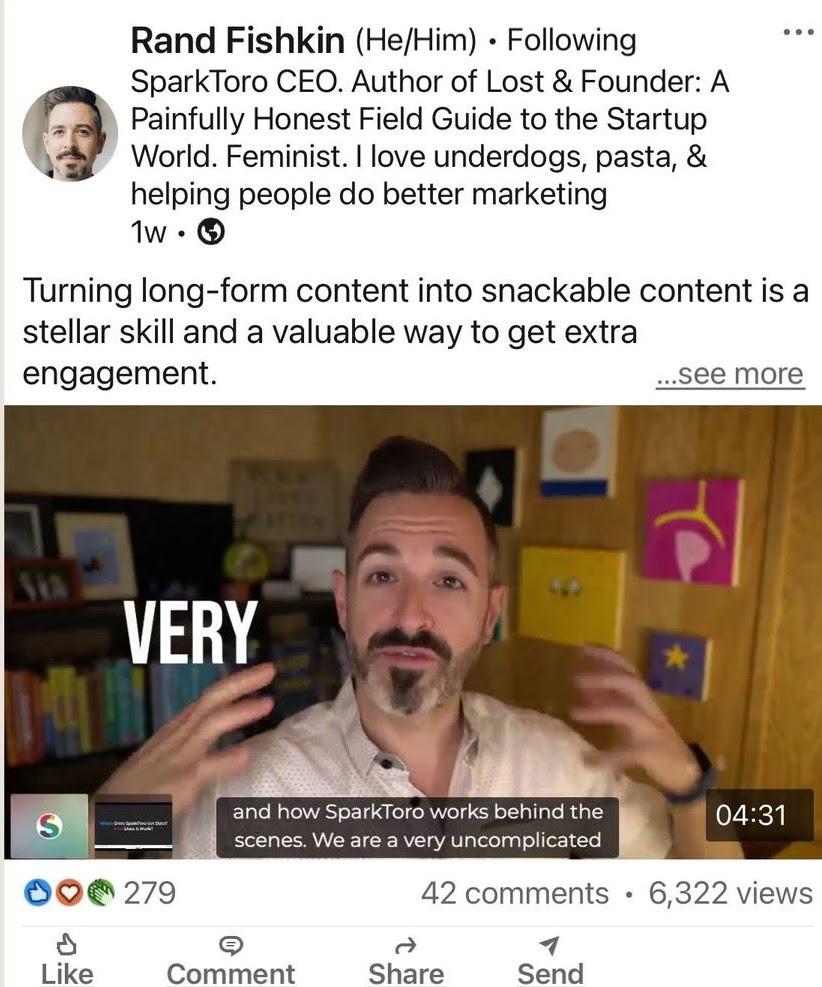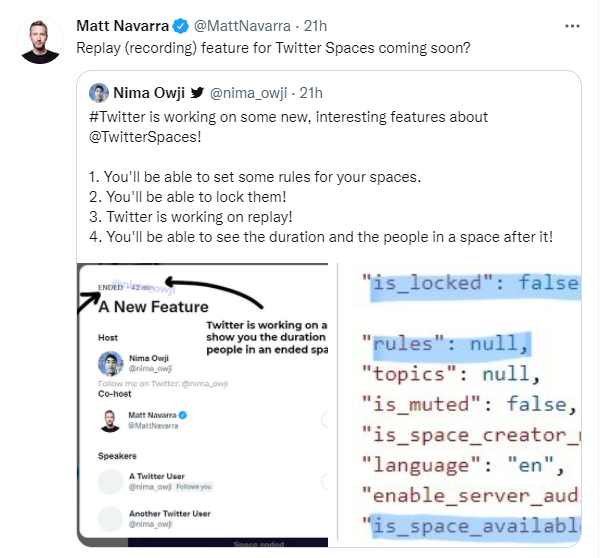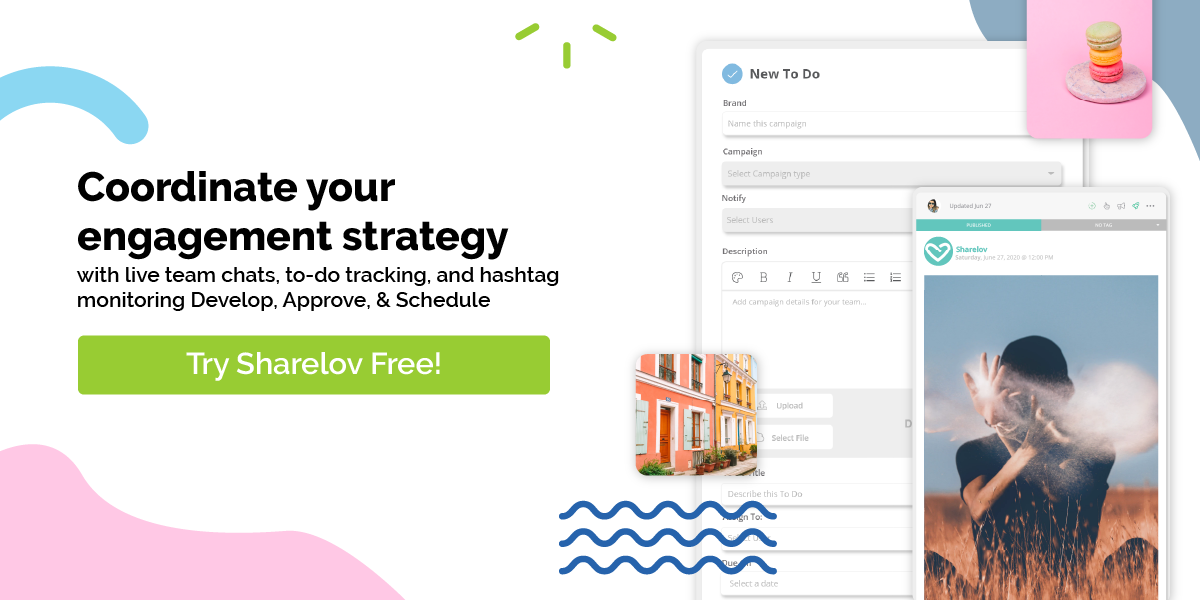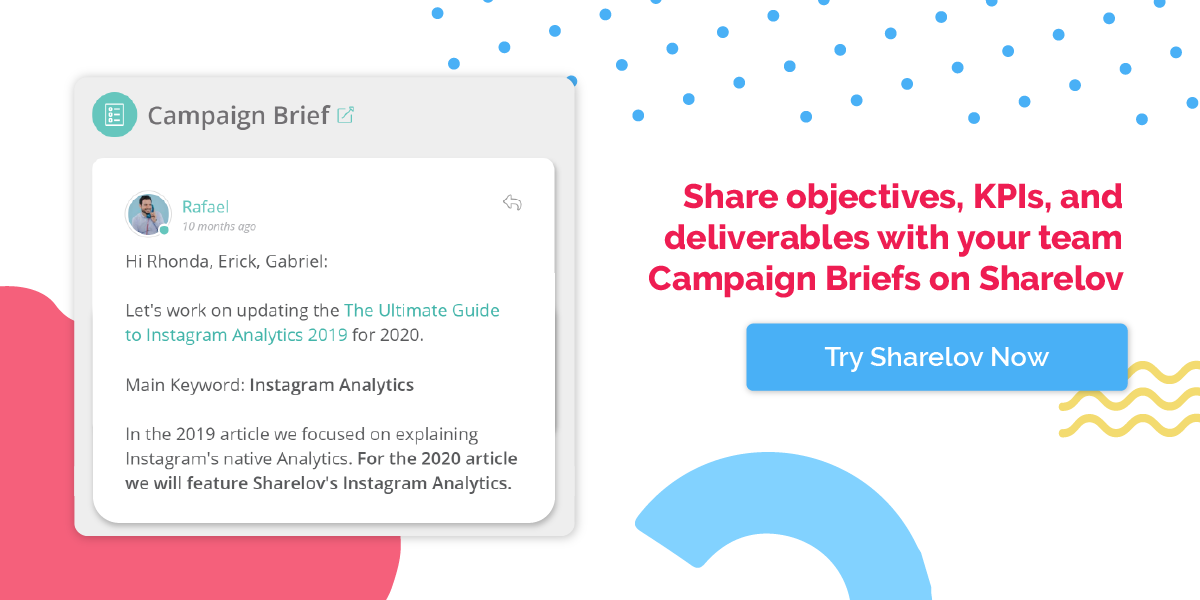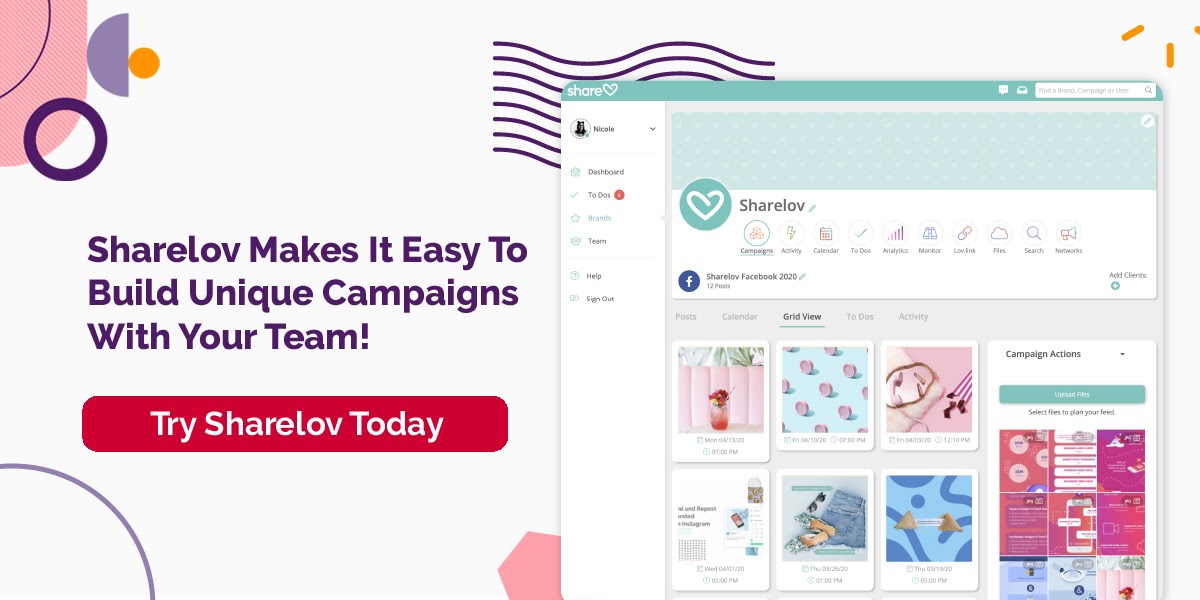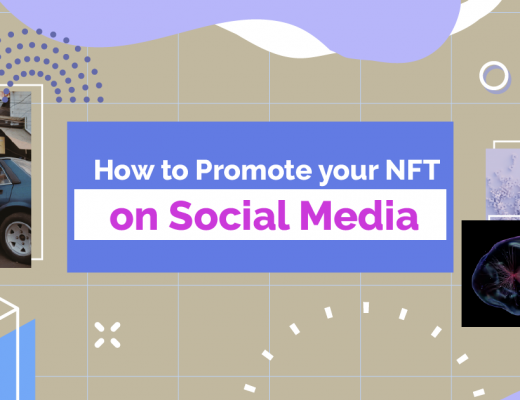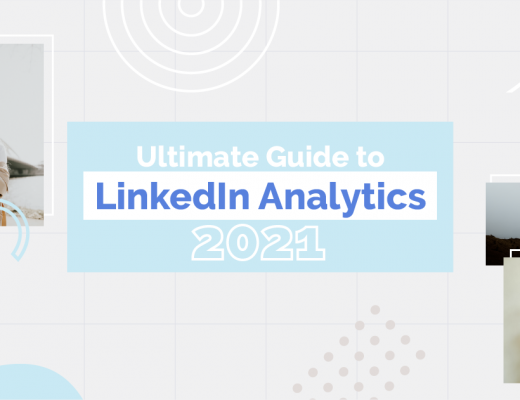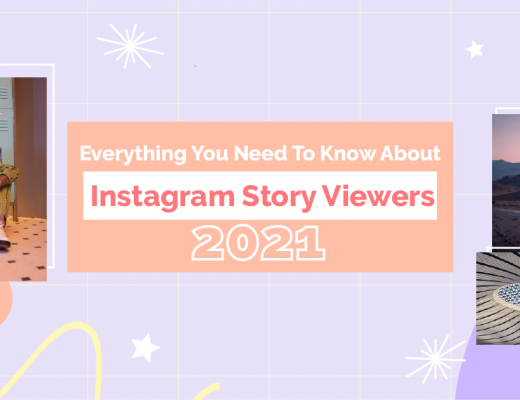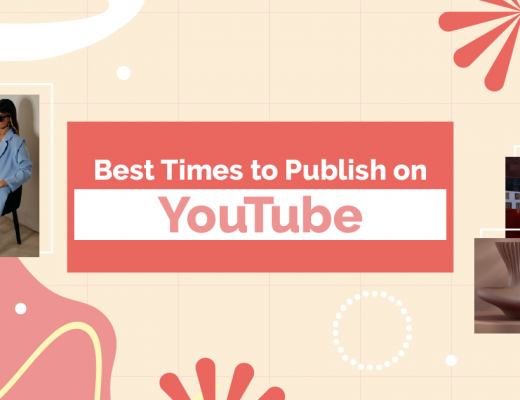Find out exactly what digital marketers do and what steps you should take if you want to get started in freelance digital marketing.
In this article, we show you the steps, tools, training, and websites you need to get started as a freelance digital marketer.
Bookmark this page before you go, because it’s the only place you’ll find all the lists, tips, and directions you need to begin a successful career as a digital marketer!
What Is Digital Marketing And Why Does It Matter
Digital marketing is a broad term that refers to all forms of online and digital marketing.
To understand digital marketing, let’s take a quick look at its counterpart — traditional marketing.
Before the advent of in-home computers and broadband internet access, traditional marketing was how brands, companies, and businesses promoted their products and services to consumers.
Traditional marketing includes all offline forms of media, such as:
- Print ads in newspapers, magazines, and any other print media
- Direct mail (paper newsletters, ads, coupons, etc.) sent to consumers’ homes or business
- Outdoor advertising, such as billboards
- Radio advertising
Limited phone sales: once a popular way to “cold call” potential new customers, today’s phone marketing is mostly limited to calling quality leads (who have given the “okay” to call them) or pre-existing customers.
Consumers rarely answer their phones to strangers anymore, thanks to scams, robocallers, and data privacy concerns, making cold call phone marketing nearly obsolete.
Traditional marketing is still used today, often in conjunction with digital marketing, but it’s typically more expensive than digital.
For example, a full-page print ad in a newspaper typically costs between $2,700 — $163,000, depending on the newspaper, placement, and print date.
Enter digital marketing.
Today, brands can place newspaper ads in the digital version of a news publication for as low as $50.
Digital advertising is less expensive because brands can narrow the audience and pay only for a small group of targeted consumers instead of paying to publish the ad in print for every newspaper subscriber.
In many cases, digital advertising also provides brands with more options and flexibility to help them reach their target audience.
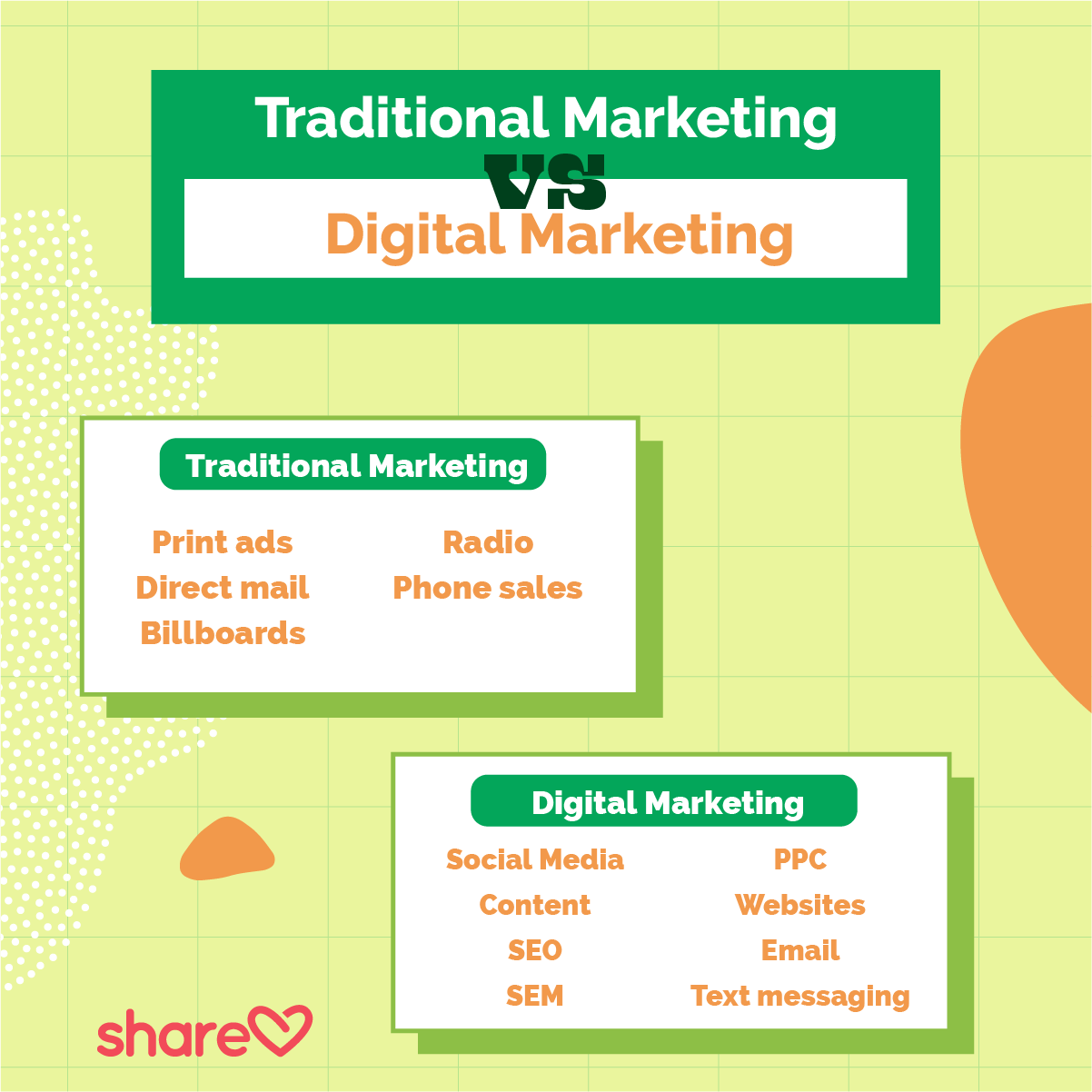
Digital marketing is a broad term that refers to many types of online marketing, including:
- Social Media Marketing (SMM)
- Content marketing (social media posts, videos, images, blog content & resources)
- Search engine optimization (SEO)
- Search engine marketing (SEM)
- Advertising: social media, search engines, and websites, including pay-per-click (PPC), native advertising, and affiliate marketing
- Websites
- Email marketing
- Text and messaging
For small to medium-sized businesses, digital marketing is an ideal way to promote businesses, since it allows brands to find, connect with, and promote to their target audiences — which often means huge returns for the company.
Digital marketing campaigns can deliver shocking returns on investment:
- Average Email marketing ROI: 4,200%
- Average Google ads ROI: $2 for every $1 brands spend
- Average Facebook and Instagram advertising ROI: 350%
Social media and SEO have paved the way for small businesses and solopreneurs to start and grow businesses through hard work and creativity, instead of having to raise tens or hundreds of thousands of dollars just to launch a business idea.
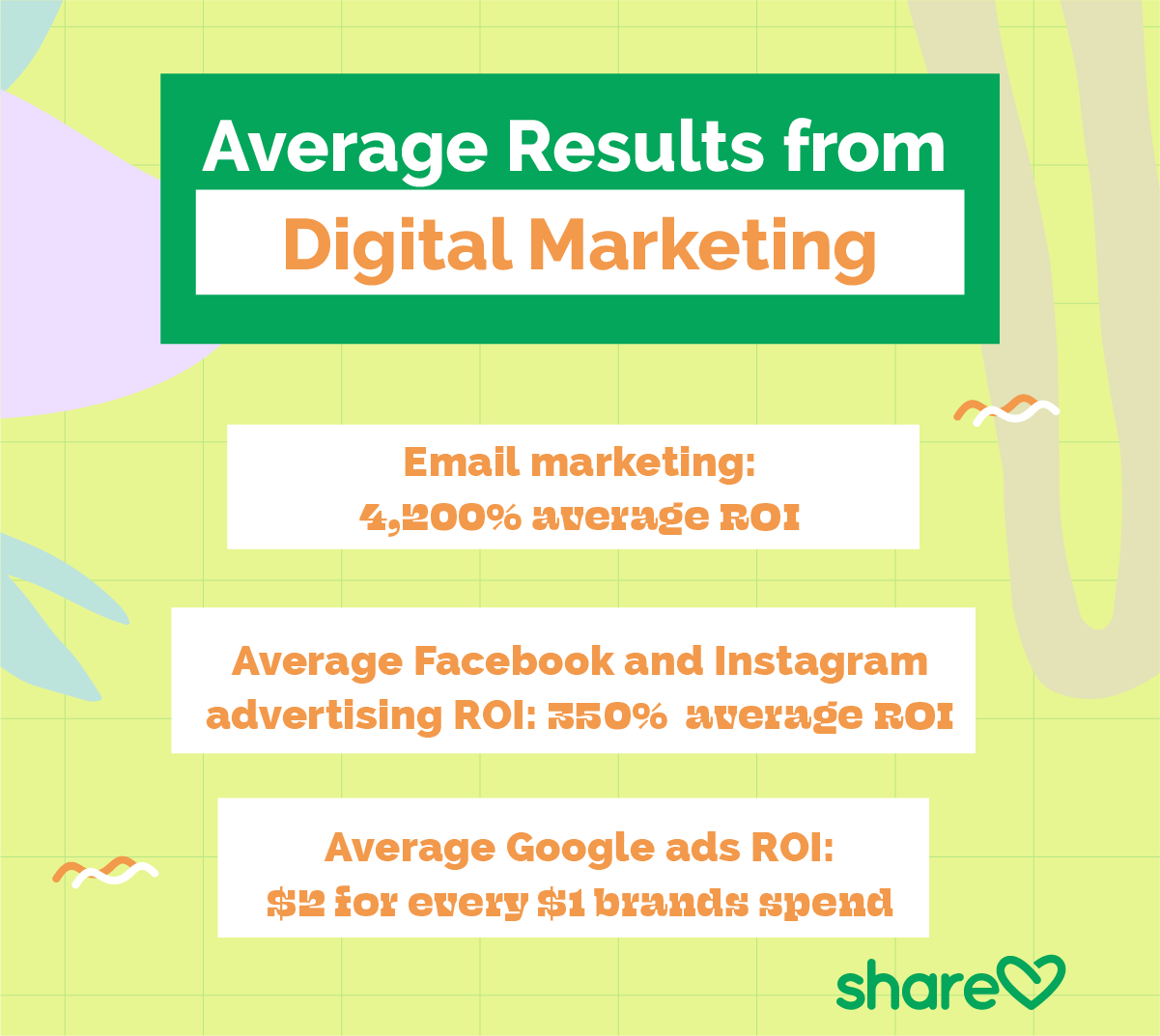
Digital marketing is used by a wide mix of business people, from tiny mom-and-pop businesses or single-person startups to international brands.
Fifty percent of marketers believe that digital marketing provides an edge over traditional marketing.
What Does A Digital Marketer Do?
Digital marketers are professionals who typically have a good deal of experience in many areas.
They typically coordinate online marketing campaigns and are responsible for generating leads and brand awareness.
Their performance is measured through analytics, which they also use to identify marketing weaknesses and strengths.
At a smaller company, it’s not unusual to have one person responsible for all of the company’s digital marketing.
Medium-to-large sized companies typically develop marketing teams or departments in which each person is responsible for a different aspect of digital marketing.
Typical Responsibilities Of A Digital Marketer
Most digital marketers juggle several responsibilities, including:
- Managing campaigns from idea to execution, and monitoring and adjusting them along the way.
- Developing strategy and planning guides for content
- Managing and monitoring social media content, blog content and resources, and all other forms of advertising and brand content.
- Recruiting freelancers and employees as marketing support staff
- Working with finance to budget campaigns
Depending on the size of the company, a digital marketer may oversee the processes listed above, or may perform the tasks themself.
Digital marketers have a solid grasp on managing projects such as campaign planning and writing, while also overseeing all the other responsibilities that come with brand marketing.
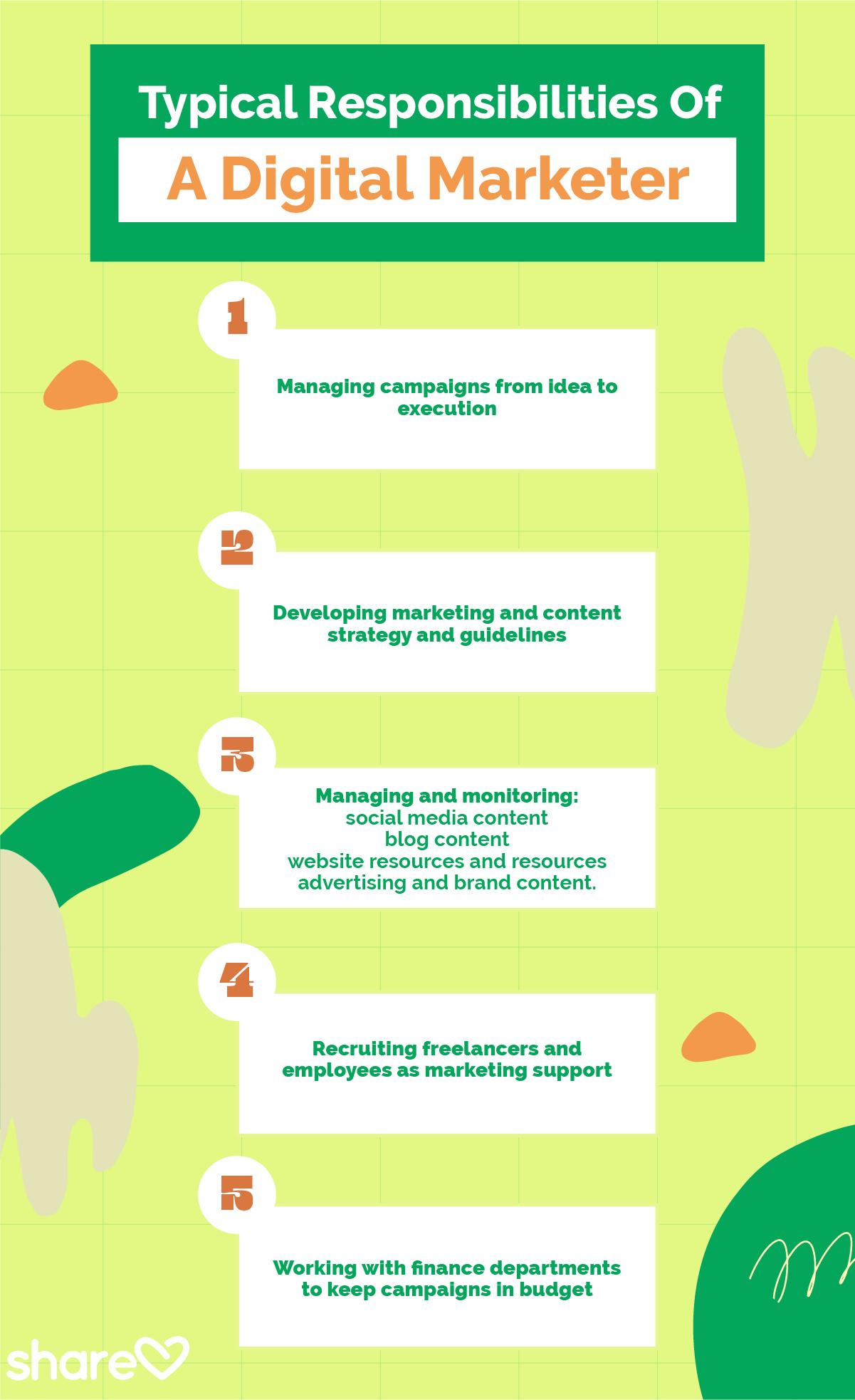
Campaign Planning
Campaign planning includes tasks such as creative development, media production (for videos and images), copywriting of ads and landing pages, and the production of written content.
During the campaign planning stage, digital marketers organize the types of content and copy that will support their goals.
Campaigns often take many months to plan, and typically run for about 3 – 6 months at a time.
Content calendars and social media calendars help marketers plan everything from social media posts and ads to search engine marketing and email support.
Timing is critical when planning campaigns, and marketers who plan in detail are typically more successful. For example, knowing that you want to publish 4 Instagram posts every week is one thing.
But do you know what time you want those posts to publish?
The timing of something as simple as a Facebook post can often make or break campaigns, since users tend to engage more with posts that appear slightly before they log on.
Writing
Copywriting and content writing play a massive role in the success of marketing campaigns and in the life of a digital marketer..
- Copywriting is persuasive writing that’s used in advertising, in headlines, on landing pages, and sometimes in social media posts.
Copywriting skills also come in handy when writing content such as blog posts and expert guides, because sprinkling a few verbs and product benefits in just the right places can have an impact on readership and conversions.
A good digital marketer understands basic copywriting concepts, and can either write the copy themselves or work with an expert copywriter for the best results.
- Blog writing and resource writing may be informative, entertaining, or both. No matter what the tone, understanding how to build SEO blog content, use correct grammar, format an article, and develop a topic is an important part of digital marketing.
- Website writing is a mix of persuasive and informative writing, and good website writers have an instinct for when to sell and when to inform.
- Social media writing requires communicating messages in a tone and voice that’s often more casual (but just as critical) than other types of writing.
Writing social media posts is a direct line to the brand’s potential customers, existing customers, and entire social media audience.
Good social media writers understand how many characters and emojis to include in each post, and how to structure CTA’s that work for the platform.
- Press release writing is often handled by marketers when a company has no public relations department.
- Business writing is used when communicating with clients, other agencies, employees and freelancers, and colleagues, and is a different form of writing than all the others.
- Team communication requires the marketer to successfully communicate ideas, deadlines, requests, and more. The tone and voice of team communication plays a powerful role in the marketers’ success, as their product is a direct reflection on the marketer.
Good writing skills are a critical aspect of marketing, yet the writing itself is often time-consuming. That’s why teams often work together to plan, write, edit, and publish copywriting and content writing.
Understanding how to write informative, persuasive, and social content is large part of digital marketing.
Multi-Tasking
At the risk of dropping a pathetically overused word, no marketer’s job description is complete without mentioning multi-tasking.
In addition to the responsibilities listed above, marketers also balance dozens of other tasks, such as:
- Keyword research
- Analytics for social media content and ads, email marketing, ecommerce, website traffic/visitors, search engine ads
- Analyze consumer behavior
- Create ads, including writing and graphics
- Produce videos for social media and website
- Develop content strategy and plan
- Promote special events, sales, and holidays
- Grow an email marketing list and write emails that engage subscribers
Digital marketers develop many skills to pull off successful campaigns.
While many people assume that marketing is a creative job, the work also involves a great deal of technical responsibilities, especially in the area of analytics.
8 Best Tools For Digital Marketing Freelancers And Teams
Even in the best of marketing teams, the tasks required to execute successful campaigns can quickly become overwhelming and ineffective without the right tools.
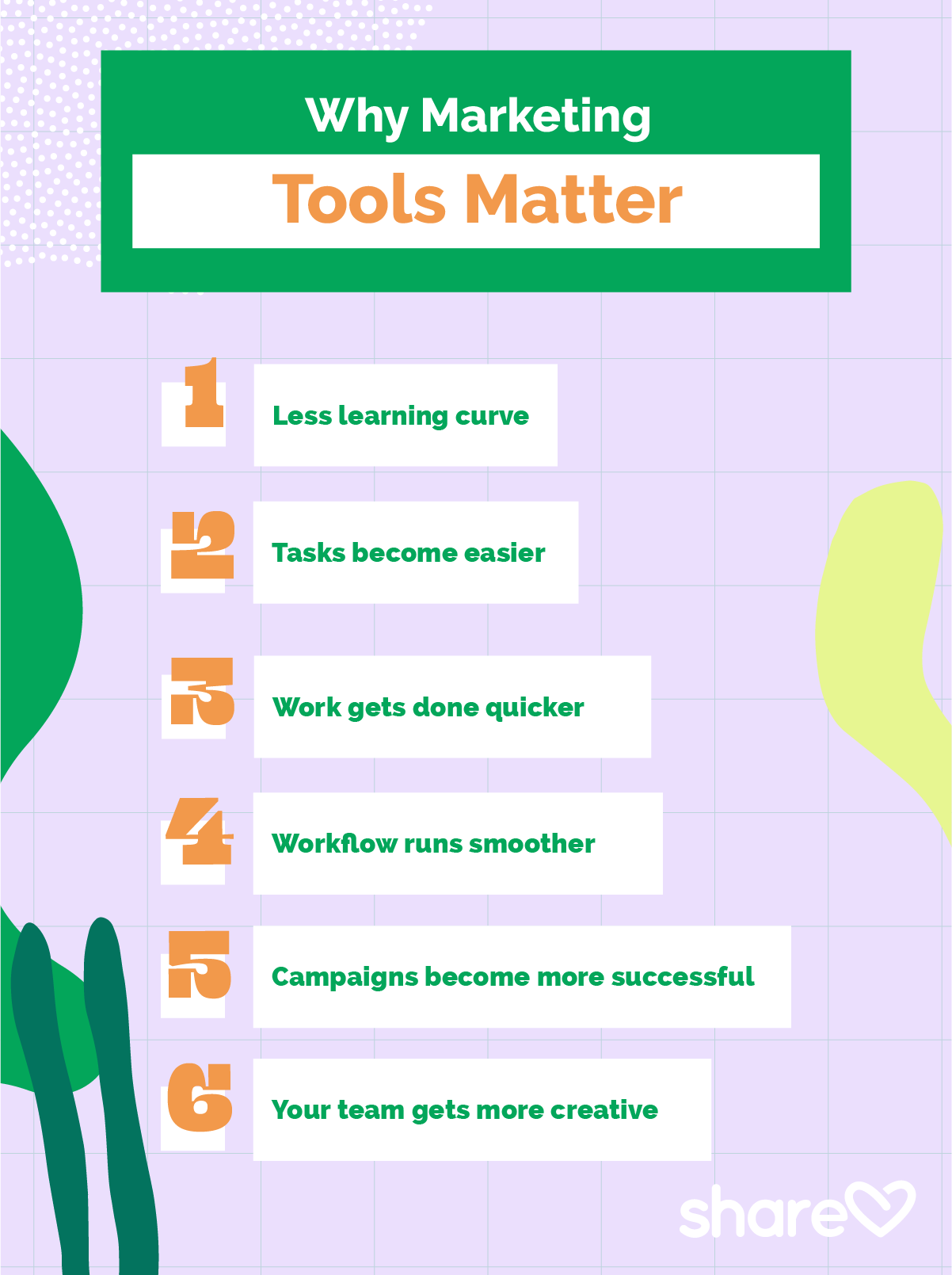
The right marketing tools help digital marketers operate more efficiently in several ways:
- Makes your job easier because there’s less of a learning curve.
- Makes your job quicker thanks to automation.
- Makes your efforts more successful thanks to analytics and artificial intelligence.
- Helps your team’s workflow to run smoothly
We’ve listed some of the most important tools for digital marketers below, all of which provide valuable assistance whether you’re working as a solo freelancer or as part of a large team.
#1: Monitoring software
Monitoring software allows you to track and review your competitors’ content in minutes every day.
You can also track your competitors’ advertising, plus your industry influencers’ content, with a good social media tracking software.
Tracking brands and influencers helps you keep up with the latest trends in your industry, and tracking your competitors’ ads ensures that you won’t miss a beat when competing with them.
#2: Analytics Tools
Social media analytics can be a time-consuming task without software tools. The metrics are easy enough to understand, but there are hundreds of options to scroll through to get to the information you need.
Sharelov’s analytics software allows you to review some of your most important social media metrics in seconds — plus, you’ll find engagement rates already calculated for you.
You can learn more about social media analytics in our guides:
#3: Collaboration (Team Feedback) Software With Tagging, Real-time Chat, Messaging, and Approvals
Still using email to communicate with team members?
Ick.
Emails become unclear when several team members are weighing in on one piece of content.
Plus, people end up with several email threads to keep track of. Before you know it, your team is wasting precious time searching for emails instead of developing your content and campaigns.
If only there were a way to share posts and comments with team members, the way you do on social media…
With Sharelov, all you need to do is share the asset or post to its campaign page and tag your team members to request their input.
Get your team’s approval, or ask them to obtain yours, before you publish.
#4: Best Times To Post Tool
Posting when your audience is online, or just before they log on, greatly increase the chances that they’ll view and interact with your content.
To determine your best times to post, you can visit the platform’s analytics site and check out when the majority of your audience is most likely to log on.
Or, you can just toggle on “best times to post” suggestions from your Sharelov dashboard when you’re scheduling the post for publishing.
#5: Hashtag Suggestion & Monitoring Tools
It’s no problem searching your favorite social media platform to find relevant hashtags for your posts, but it’s a whole lot quicker when a tool does it for you.
Sharelov’s hashtag suggestion tool instantly recommends hashtags for you, so you don’t need to get sidetracked by hashtag research.
The hashtag monitoring tool allows you to quickly pull up related hashtags so you can see real-life examples of how they’re used.
You’re able to review the hashtagged posts in a grid view, instead of visiting each account individually. This one’s a huge timesaver!
#6: Content And Campaign Calendars
Visual content calendars make planning easier on you and your team because you can review timelines at a glance and click on campaigns or content for complete details.
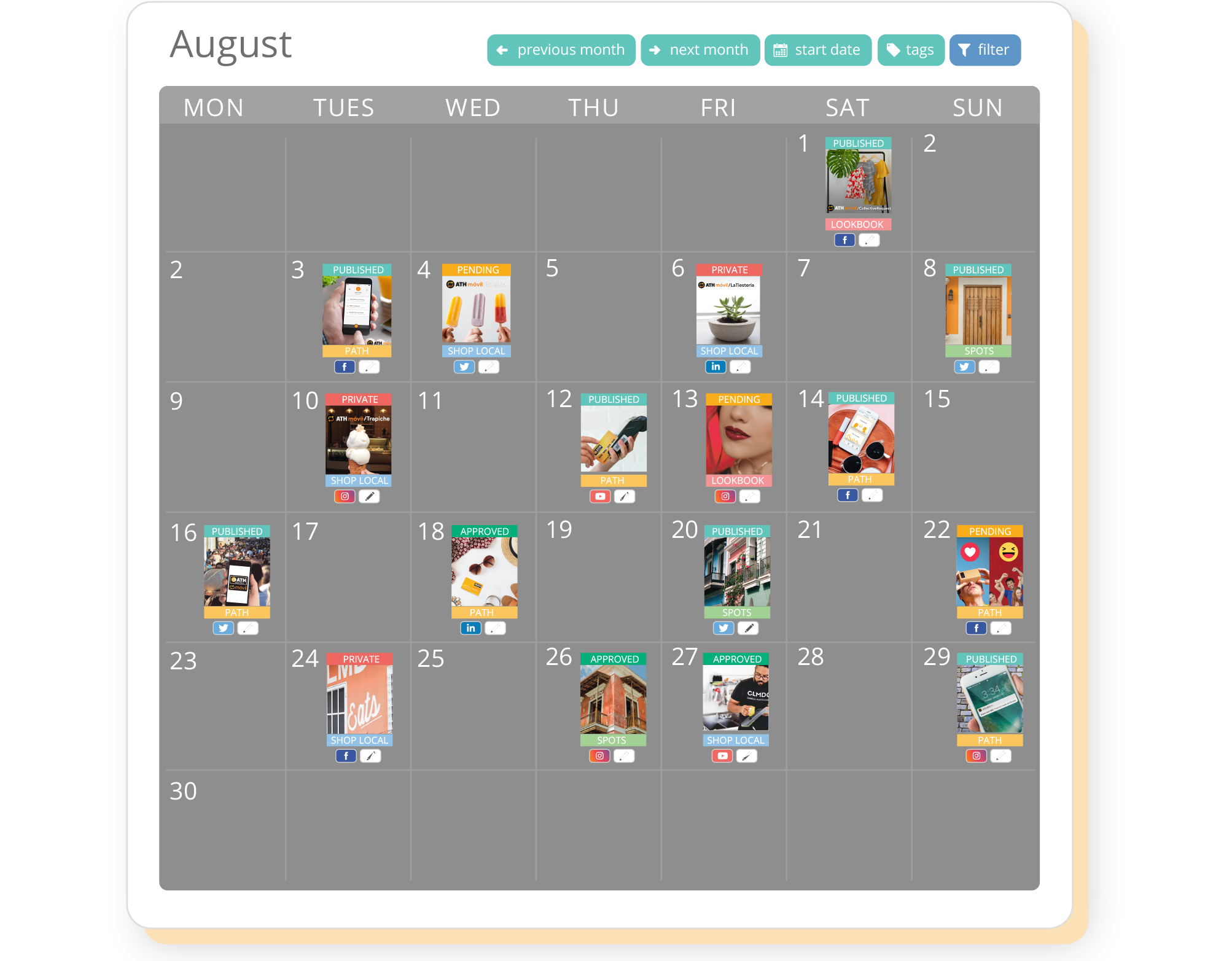
#7: Comment Manager Tool
If you’re successful with social media marketing (and we know you will be!), you’ll get lots of engagements, especially comments, on your posts.
Responding to posts is critical to a brand’s success, but how do you keep track of all the comments and replies?
A comment manager tool allows you to read and reply to comments within your marketing software dashboard. For example, with Sharelov, it’s super-easy to review and reply to your audience’s comments.
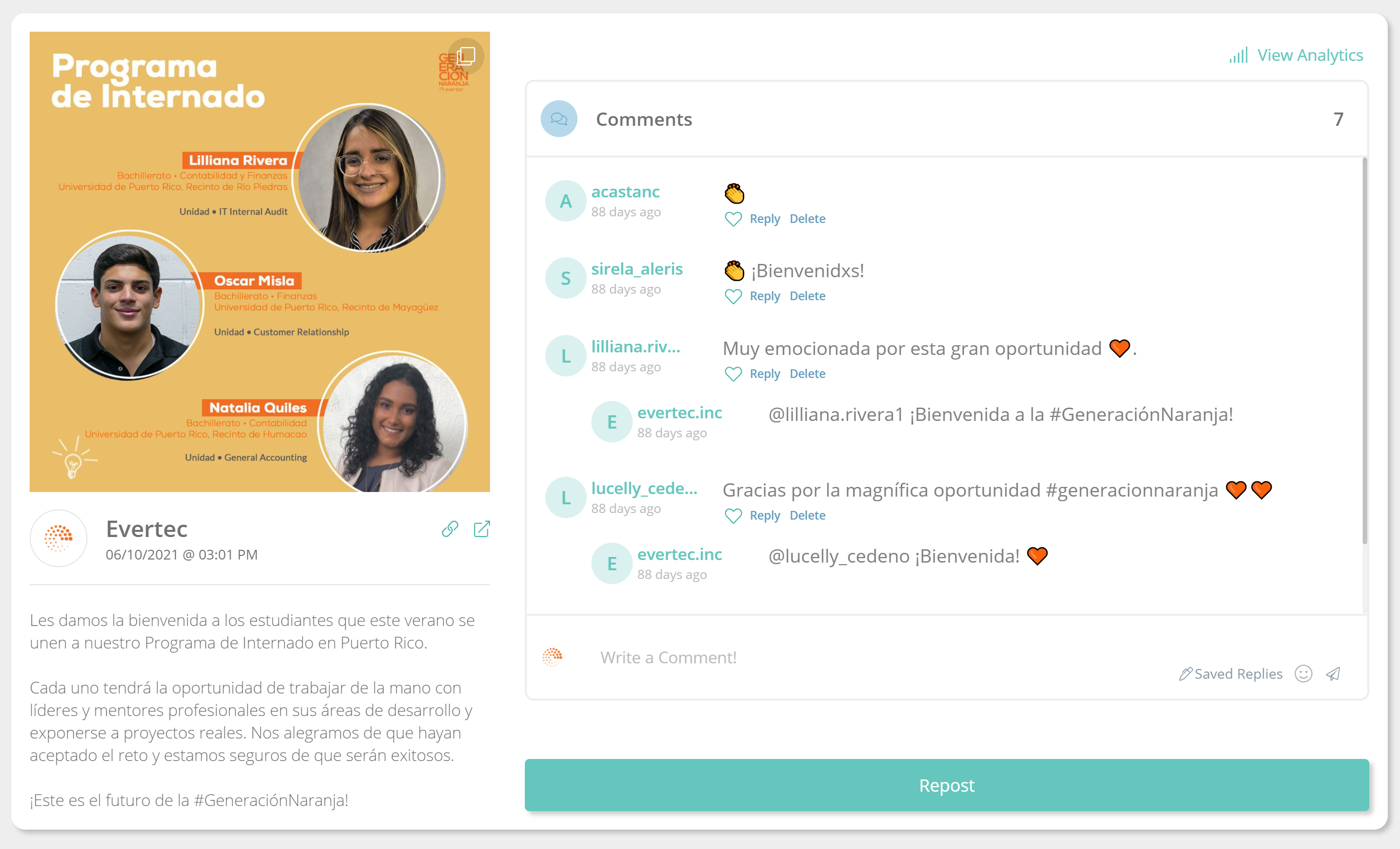
#8: Auto Publish Tool
Auto publishing on social media means you can create posts and content, then schedule it to automatically publish at the time you choose.
Auto-publishing is a must for busy marketers who are in meetings, planning campaigns, and overseeing brand promotions.
Marketing tools allow digital marketers to get their tasks completed more quickly and efficiently. When they’re included as part of your marketing collaboration software, you get more effective marketing AND better team communication all around.
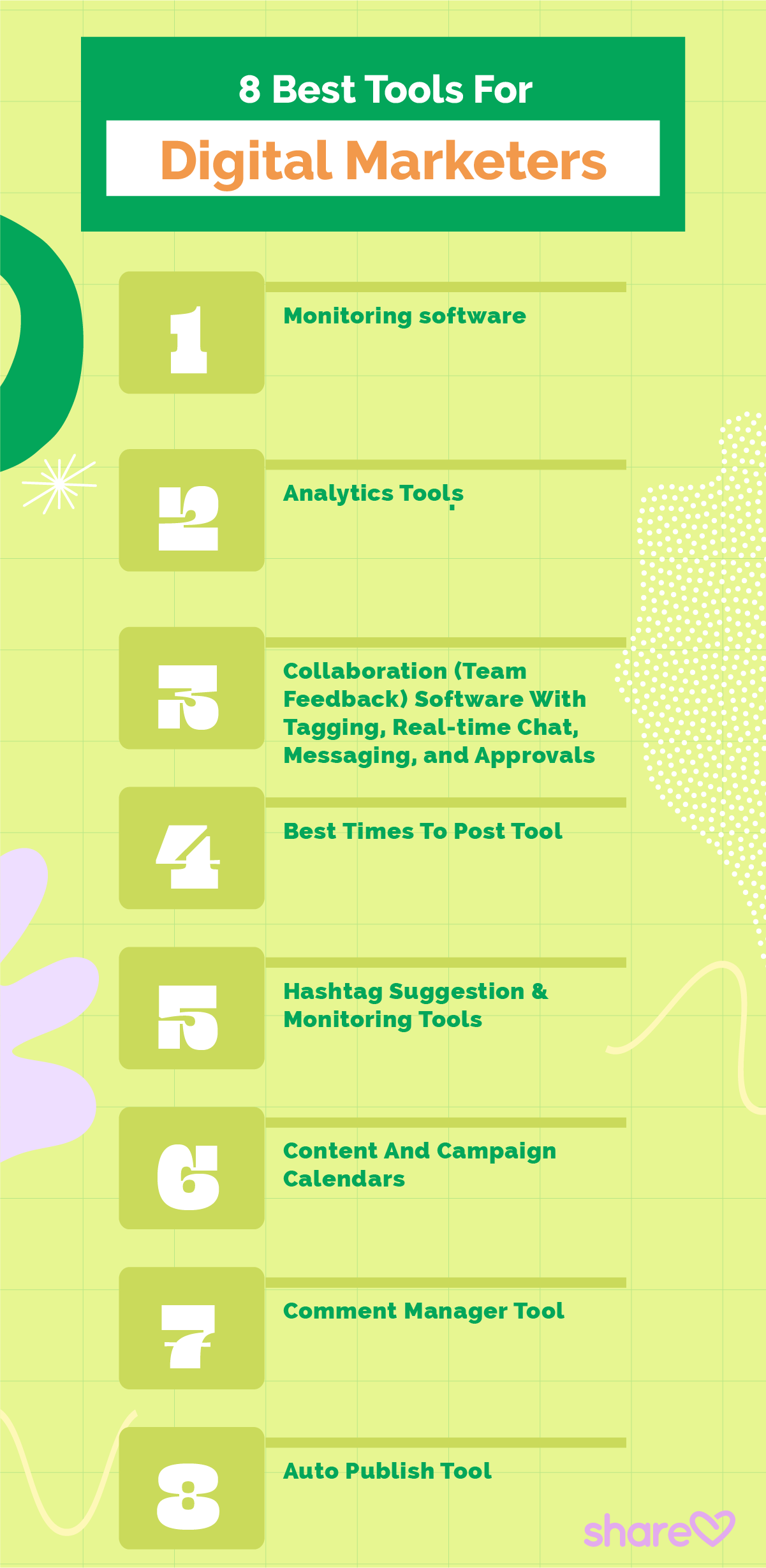
At Sharelov, we understand that marketing tools can make or break your campaigns. That’s why we’ve developed a full suite of tools to assist solo freelancers and full marketing teams with the small details that make a massive difference.
Looking for the best marketing tools for your job? Give Sharelov a try today, for free.
Step One: Choose A Marketing Niche
To get started in digital marketing, it’s best to focus on learning one or two skills well, rather than trying to learn everything there is to know about the industry.
Specializing in one area of marketing allows you to excel in your niche, which leads to more clients and better-paying work.
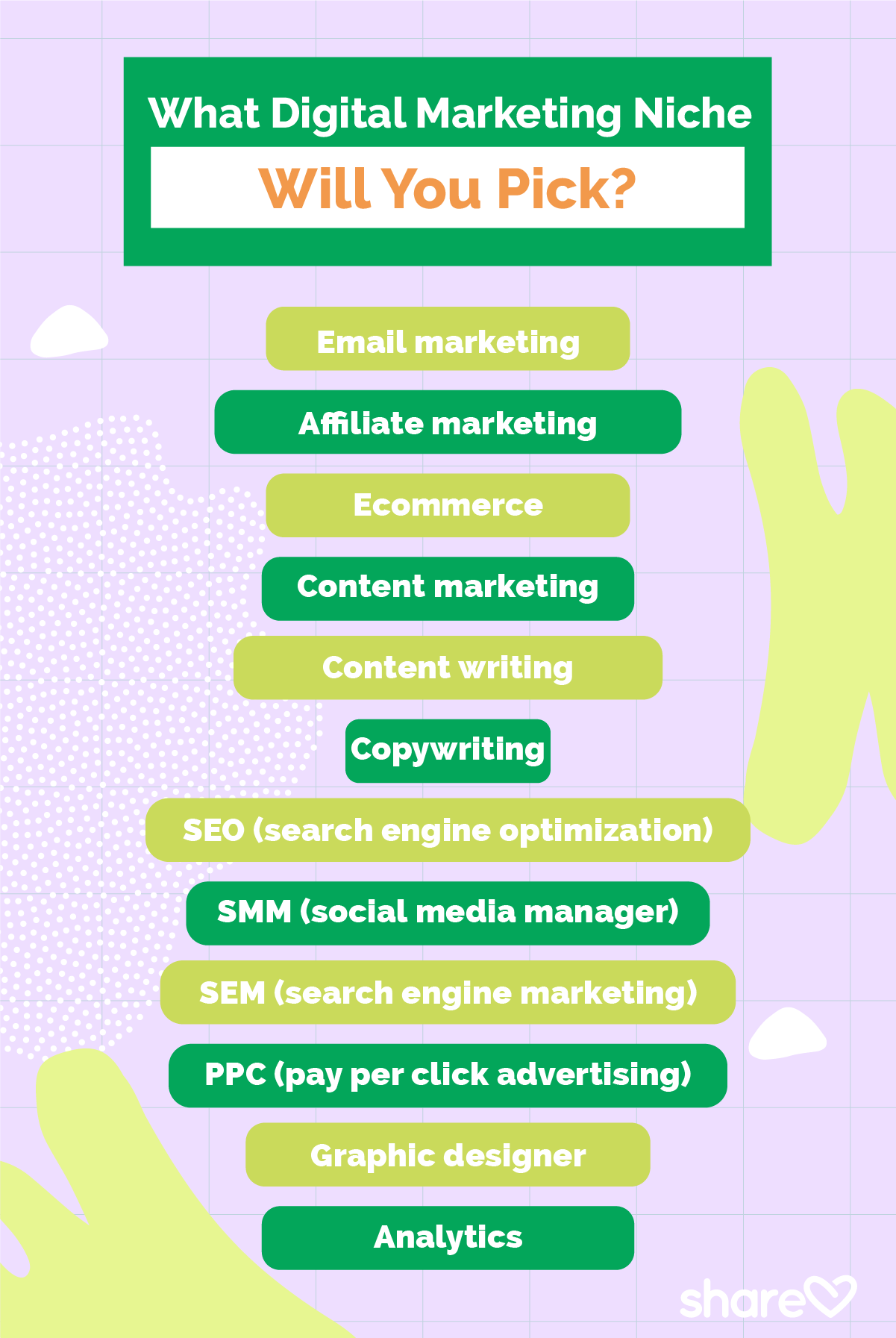
If you’re not sure which niche to pursue, lean toward areas that you greatly admire or that you think would come easier to you. Having even a bit of experience or familiarity in a niche can help you learn quicker and become more successful down the road.
Some digital marketing specialities you might consider include:
- Email marketing
- Affiliate marketing
- Ecommerce
- Content marketing
- Content writing
- Copywriting
- SEO (search engine optimization)
- SMM (social media manager)
- SEM (search engine marketing)
- PPC (pay per click advertising)
- Graphic designer
- Analytics
Before you choose which marketing speciality to pursue, we recommend researching the market and pay range of that niche, so you understand what you’re pursuing and can set realistic goals.
If you’re new to marketing, it helps to get an overall view of how digital marketing works.
You’ll find a free, comprehensive course on digital marketing at Hubspot Academy. They’re the folks who created Inbound Marketing, the approach to digital marketing that focuses on thought leadership and high-quality customer service.
Inbound marketing concepts influence nearly every one of today’s successful online brands, businesses, and entrepreneurs, and what you learn in the course will increase your chances of success as a digital marketer — no matter what speciality you pursue.
The Inbound Marketing course is free, with an option to test for an Inbound Marketing certification from Hubspot. The optional testing and certification process is also free, however, if you hope to claim the well-respected certification, you’ll need to invest about as much time as you would in a college course.
- Source: Hubspot Academy
Before you choose a marketing speciality, research the industry and competition, assess your natural interests and skills, and gain an understanding of digital and inbound marketing.
Step Two: Get Training
Once you choose a speciality, you’ll want to pursue the skills training and education needed to work as an entry-level professional in your niche.
How long your training takes depends on the niche you choose and how natural the topic feels to you.
For example, an understanding of SEO is essential to nearly all marketing specialities. However, if you decide to pursue it as a speciality, it takes time because SEO has many more layers (and is far more technical) than you might imagine.
If you naturally lean toward technical industries, SEO will come easier and quicker.
But if you’re jumping into a technical field for the first time, gaining the level of understanding needed to specialize in it could take years and leave you always feeling one step behind.
If, however, you choose a speciality that feels more natural, your training will move quicker.
For example, if you’ve always enjoyed reading and are a decent writer, specializing in content marketing or writing is a natural niche choice.
Or, if you tend to be the life of the party or are a social media influencer, you might consider social media marketing.
Choosing a specialty that feels natural, combined with good training, means that you can probably begin entry-level work in your niche within six months or even less. If you have previous experience, you may even start working within a month or two.
Fortunately, most training and college courses are available online, and most are free.
If you’re new to your field, soak up all the free and low-cost training you can get before investing in high-priced paid courses or education.
In most cases, you won’t know which courses are worth the investment and commitment until you have at least a bit of previous training. We recommend taking a few free or low-cost courses before committing to higher cost training.
12 Best Places To Get Digital Marketing Training
#1: Google Academy provides training for beginner and advanced analytics.
#2: Google Digital Garage offers a helpful course on digital marketing, containing exercises and real-world examples, which is especially helpful for people who are new to the industry.
#3: Hubspot Academy offers in-depth marketing training in content marketing, social media marketing, lead generation, and more.
#4, 5, 6: MIT, Coursera, and EdX offer countless online University courses on digital marketing, many of which can be audited for free.
#7: Udemy: Udemy courses generally run about $100 – $150, however, they’re usually on sale for less than $30. Search for your specialty or for digital marketing to browse a massive selection of digital marketing courses.
#8: Skillshare offers a wide variety of courses on every topic, including several marketing niches, for a flat-rate monthly fee. You can usually get a one-month free trial before signing up for a premium membership for less than $10 a month.
#9: LinkedIn Learning (formerly Lynda) provides a wide range of paid digital marketing courses from several sources.
#`10: The Digital Marketing Institute offers paid training and certification from the American Marketing Association from about $2,000, although you may find it discounted to $1,300.
#11: Moz Academy: offers paid SEO courses, certifications, and training plans for SEO professionals. Its certification series (each containing several courses) run between $100 – $600 each.
Training and education is an ongoing process in digital marketing. Due to the ever-changing and competitive nature of the industry, you’ll want to continue your training throughout your career.
#12: Sharelov blog for social media marketers. The in-depth articles in Sharelov’s blog will help you understand exactly how to promote brands on Instagram, TikTok, LinkedIn, and Facebook.
Every article delivers data-based marketing tactics, along with tips, real-world examples, ideas, and the very latest info on social media formats, features, and updates for all the major platforms.
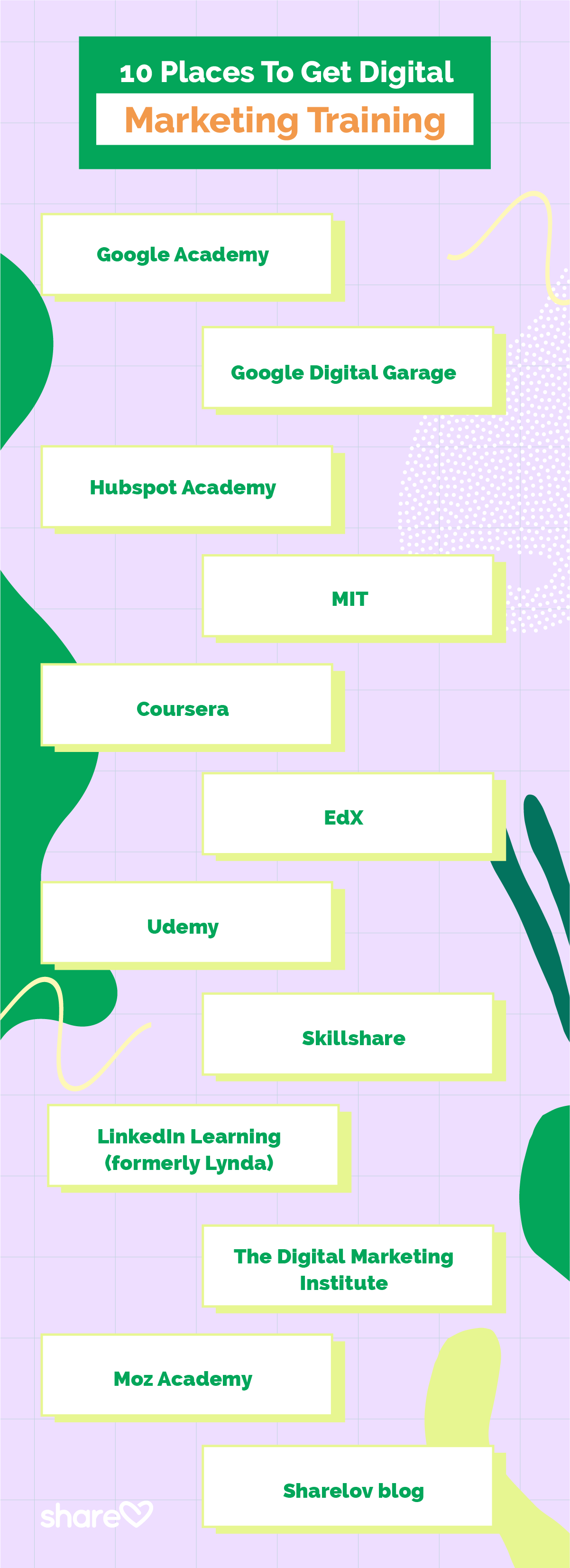
Step Three: Get With The Trends
Marketing is a constantly-changing field. Whether it’s SEO, content marketing, or PPC, changes to search engines, social media platforms, and public opinion influence what works – and what doesn’t – in digital marketing.
By the time you begin accepting work as a freelance digital marketer, some of the things you learned in training will probably already be out-of-date.
That’s why following industry leaders on their blogs and social media is critical to marketers.
Find the leaders in your niche, and make a conscious effort to follow their blogs or social media pages for the latest information and creative inspiration for your speciality.
For example, if you want to pursue blogging, lead generation, content marketing, or SEO, consider following Unbounce, Brian Dean, Neil Patel, and Copyblogger.

SEO, SEM, and PPC specialists will want to follow MOZ, SEM Rush, and Search Engine Land.
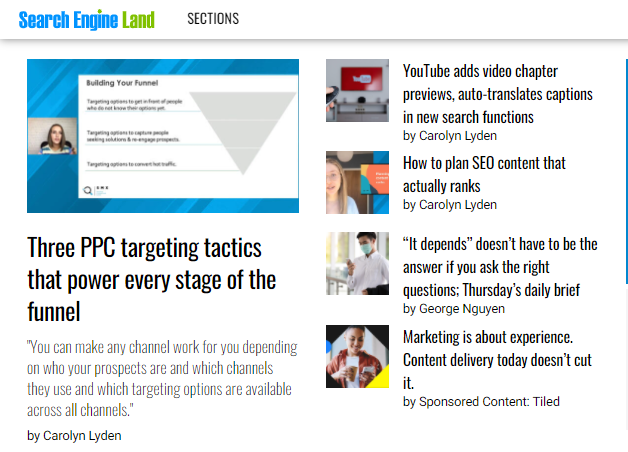
Social media professionals should check out our blog here at Sharelov for in-depth how-to, tips, examples, and platform-specific training.
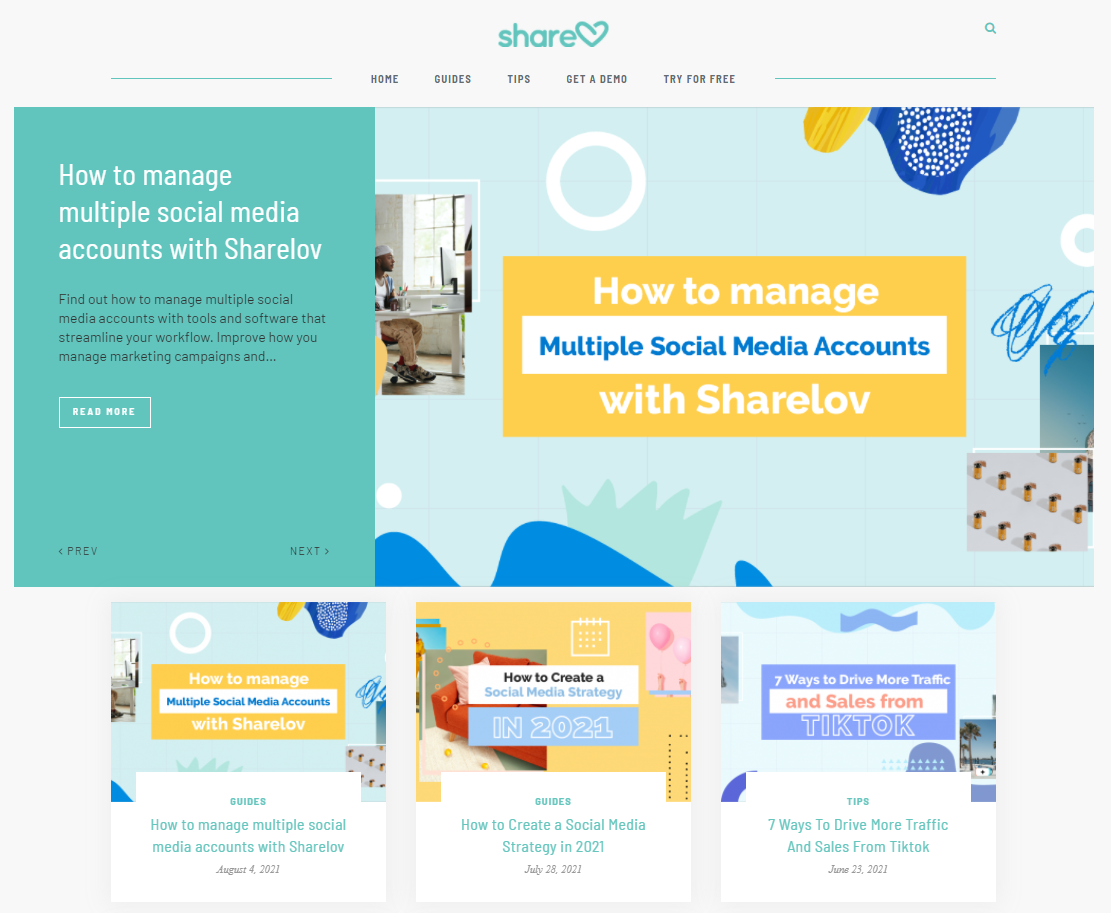
Other social media blogs worth following include Ann Handley and Lilach Bullock, just to name a few.
Keeping up with your favorite industry leaders’ may be easier when you follow them on social media. Most announce their new blog posts in their feed, and usually toss in some exclusive tips, videos, and ideas for their social media audience.
For example, Instagram specialists Sue B. Zimmerman and Mari Smith post regularly on Instagram and Facebook.
- Source: Mari Smith on Facebook and Sue B. Zimmerman on Instagram
Rand Fishkin on LinkedIn and Matt Navara on Twitter are also excellent marketing influencers to follow.
SEO and SEM hopefuls might follow industry leaders from SEM Rush, Search Engine Land, and Moz.
If you are brand new to digital marketing and have no marketing degree, you can expect to take lower-paying jobs during your first six months, to gain experience and references.
Once you complete your first year as a freelance digital marketer, you’re ready to evaluate your own experience and determine what you’ll look for in future clients.
Choosing the right clients for your skillset and personality can have a massive impact on how well you enjoy your work and whether you excel at it.
Step Four: Prepare Your Online Presence
If you want to work as a freelance digital marketer, your online presence is critical to getting work.
5 Tips To Help You Get Started Building A Professional Online Presence
- Review your social media profiles.
- Build a professional social media profile on LinkedIn, and while your there — join a group or two and begin networking.
- Join Facebook forums and groups within your niche to develop relationships with your future peers.
- Create an online portfolio of your work, if you have anything to show.
- Prepare a brief resume that you’ll alter for any platform or client that requests it.
- Build a simple website. Remember, your job is to perform digital marketing responsibilities – not to build websites (unless that’s your nice, which is a different story). Build a basic website where you can share your “about me” and contact information, and any other information that you know clients will ask about.
The more you participate and engage with your industry, the quicker you’ll learn about your speciality. Establish your online presence to validate your commitment to your industry.
Step Five: Collect Positive Reviews
Now that you understand how to get training and establish an online presence, you’re probably already asking the main question all beginners face:
How do you build a resume or get clients with no previous experience?
Getting your first job or two is a challenge, but if you’re interested in marketing, then you love a challenge anyway.
Your goal in this step is to search for short-term jobs that you know you can excel at, and clients you know you can please.
Once you prove yourself by earning a few 5-star reviews, you can begin looking for ideal clients and fulfilling work.
In the beginning, your job is to look for short-term marketing gigs on job boards and freelance sites, such as Upwork, that offer a review system for clients to sing your praises.
Alternatively, you can intern or volunteer at local companies or even help out a friend who needs a marketing person — as long as they’re willing to write a short recommendation (which you can include on your website).
During the first few months, your purpose is to learn how people communicate, find out how to please them, and get a few stellar reviews that you can include on your website.
The size of the job and pay scale don’t matter because once you prove that you’re trustworthy, reliable, and competent, you can begin to grow in your career as a digital marketer.
Step Six: Look For Quality Clients
By this step, you should have a good idea what area of digital marketing you want to specialize in, as well as have an idea how much you’d like to earn, how many hours you want to work, and what goals you want to achieve in the next couple years.
When looking for clients that you want to work with long-term, the following qualities:
- Are they trustworthy?
- Are they reliable?
- Do they speak well of their employees and freelancers?
- Does their business seem promising?
- Are they realistic about their marketing goals?
- Do they pay on time?
- Do they respond to communications in a timely manner?
Many freelancers juggle a long list of clients, however, marketing is long-term work. As a digital marketer, in most cases you will likely seek out long-term clients.
Knowing your personal goals and what traits you appreciate in a client will help you find freelance work that allows you to enjoy and experience marketing clients’, rather than constantly needing to market your services.
No matter where you look for work, you’ll probably face massive competition while also having to weed through scammers who will try to get you to work for less than what they promise, or even for free.
Developing an instinct for genuine job postings and potentially profitable gigs is critical to your future as a freelancer. You can only do this with experience, though, so be prepared for a failure or two as part of the learning process.
The following job sites publish excellent freelance digital marketing work. Like any public forum, you’ll need to dig deep to find the best jobs.
8 Best Places To Look For Freelance Digital Marketing Work
Here are eight ways to look for digital freelance clients:
- #1: LinkedIn, LinkedIn, LinkedIn
- #2: Upwork
- #3: Freelancer
- #4: FlexJobs
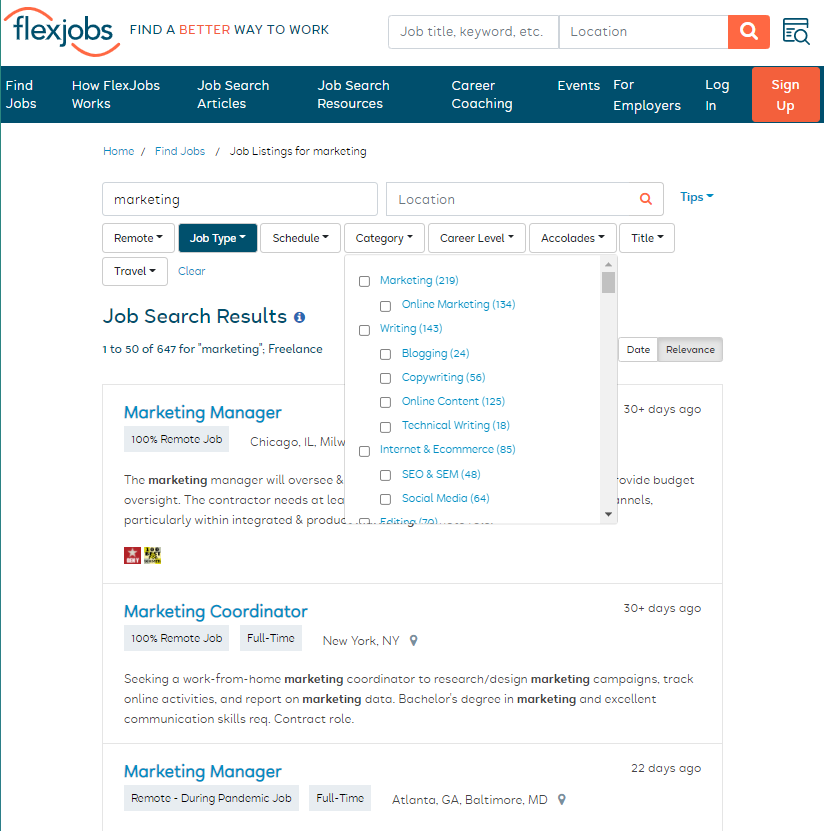
- #5: Guru
- #6: PeoplePerHour
- #7: Toptal
- #8: Google Alerts (create a job posting notification, i.e., “SEO writer,” “SEO writer wanted,” “copywriter needed,” “Adwords specialist needed”)
Pro Tip: When you fill out your portfolio on any job site, always include keywords related to the type of work you want.
Keywords help brands and recruiters find their way to you and, in many cases, choose which people to interview.
How To Find A Freelance Digital Marketer For Your Brand
Digital freelance marketers provide several advantages to brands:
- Typically more cost-effective than employees
- Often more flexible in regards to assignments and how they work
- Almost always learn rapidly
- Typically have more expertise since they often focus on one speciality
Working with freelancers can be as easy as working with employees, if you already have communication and production software in place. Good marketing tools, such as collaboration software, help your team develop and publish marketing assets no matter where they’re working from.
Sharelov collaboration software allows your team to message, chat, share their latest creations, develop content together, and produce any type of marketing campaign (online or off) with consistency.
Freelance Digital Marketing — Best Job On The Planet?
People wanting to work as freelance digital marketers should first gain experience in a variety of marketing niches.
Keeping up with the latest marketing trends is a critical aspect of digital marketing, so blogs, social media, and courses are essential, whether you’re a freelancer or employee.
Marketing tools help make campaigns run smoother and more successfully, and can also cut the time and training needed for complex tasks.
Digital marketers enjoy the best of all worlds. From keeping up with the latest trends to working with a wide variety of people, they’re able to embrace both the creative and nerdy sides of their personalities on a daily basis.
Is freelance digital marketing the best job on earth? With the right clients, it can definitely be one of the best for you.




